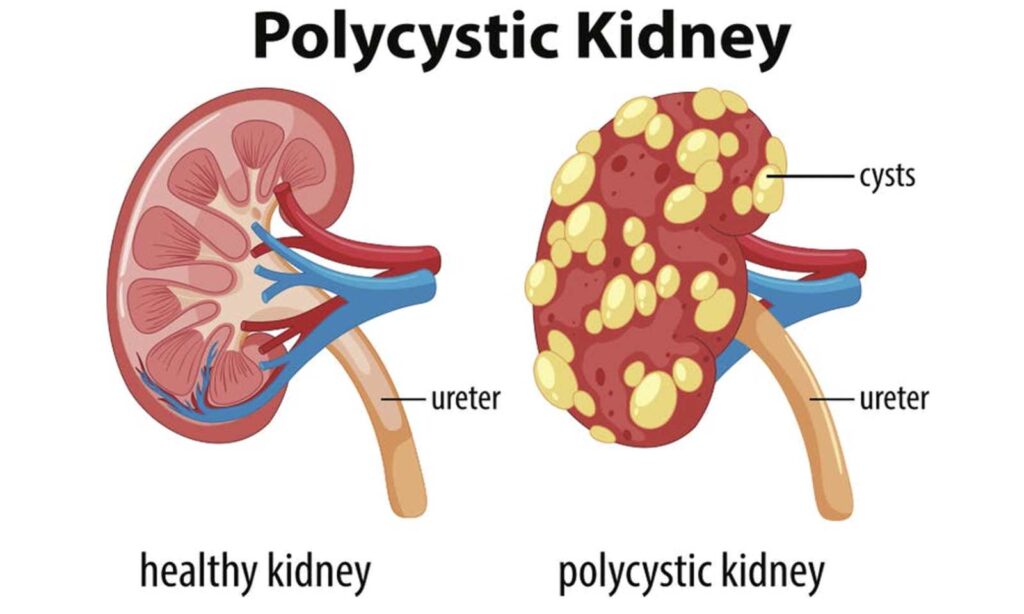Polycystic kidney disease (PKD) is a condition that affects the kidneys. When people have PKD, abnormal fluid-filled sacs called “cysts” grow in the kidneys.
The cysts cause the kidneys to get bigger than normal. The cysts can also keep the kidneys from working normally. This can lead to problems, such as high blood pressure, kidney infections, and kidney failure. Kidney failure is when the kidneys stop working completely. Besides kidney problems, PKD can cause problems in other parts of the body.
PKD usually runs in families.

What are the symptoms of Polycystic Kidney disease?
Some people with PKD have no symptoms. When people do have symptoms, they can have:
- Pain in the lower half of the back or on the side, with or without a fever
- Pain in the belly
- Blood in the urine
- Kidney stones – These are small, stone-like objects that form inside the kidneys. They can cause belly or side pain, or blood in the urine.
Polycystic Kidney Disease can also cause problems in other parts of the body, such as:
A bulging blood vessel in the brain – If the blood vessel bursts, it can cause a sudden, severe headache and nausea and vomiting. A burst blood vessel can lead to brain damage and even death.
● Cysts in the liver – These can cause belly pain.
● A weak area in the belly muscles (called a “hernia”) – This can cause an area of the belly to bulge out.
● Heart problems – These do not usually cause symptoms.
Is there a test for Polycystic kidney disease?
Yes. To find out if you have PKD, your doctor can do:
- An imaging test, such as an ultrasound, CT, or MRI scan – Imaging tests create pictures of the inside of the body.
- Blood tests to check for the abnormal genes that cause the disease
How is Polycystic Kidney Disease treated?
If Polycystic kidney disease is causing high blood pressure, your doctor will probably treat that first. This can help your kidneys stay healthy for longer. Treatment usually involves lifestyle changes, diet changes, and medicines.
If you have other symptoms or problems, you might need other treatments, too. For example, doctors can:
- Treat kidney infections with antibiotic medicines
- Treat pain with pain-relieving medicines
- Do surgery to fix a bulging blood vessel in the brain
- Do surgery to fix a hernia
Your doctor can talk to you about your treatment options.
For more Details Kindly Contact Dr. Krishna Patil- Consultant Nephrologist
